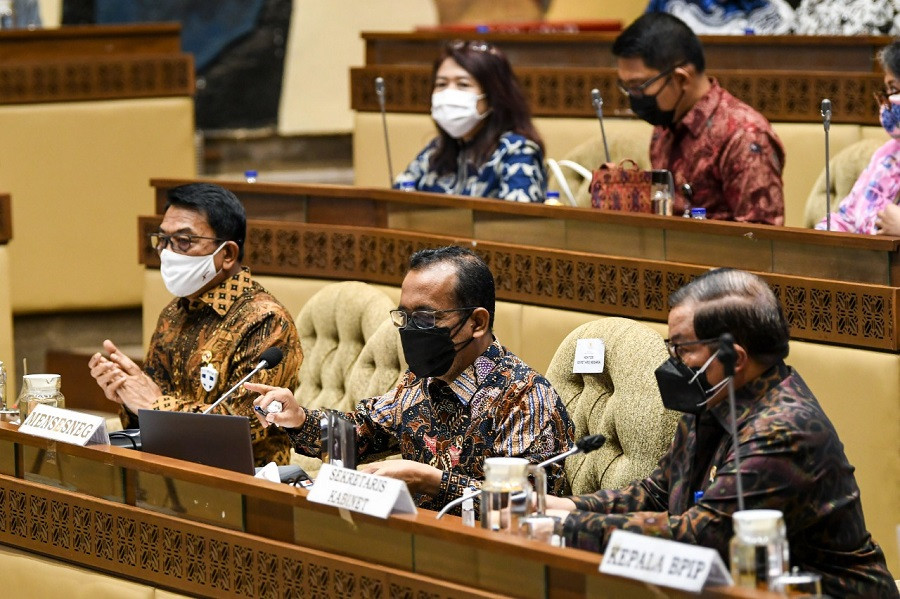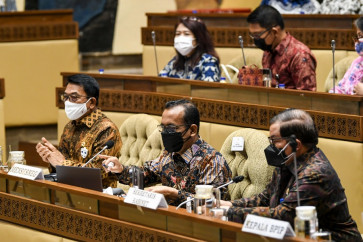Popular Reads
Top Results
Can't find what you're looking for?
View all search resultsPopular Reads
Top Results
Can't find what you're looking for?
View all search resultsRevisiting Indonesia's post-COVID fiscal policy
Change text size
Gift Premium Articles
to Anyone
 Face to face: Government representatives (from left) Presidential Chief of Staff Moeldoko, State Secretary Pratikno and Cabinet Secretary Pramono Anung attend a hearing on state budget allocation with House of Representatives Commission II overseeing governance affairs on Sept. 20, 2022. (Antara/Galih Pradipta)
Face to face: Government representatives (from left) Presidential Chief of Staff Moeldoko, State Secretary Pratikno and Cabinet Secretary Pramono Anung attend a hearing on state budget allocation with House of Representatives Commission II overseeing governance affairs on Sept. 20, 2022. (Antara/Galih Pradipta)
B
ack in 2020, the COVID-19 pandemic had significant socio-economic impacts on major countries, including Indonesia. The pandemic restrained economic activities, increasing the poverty level and burdening the purchasing power of the mid-to-low income class in Indonesia.
The poverty rate, which in 2H19 was at 9.22 percent, the lowest level in the last 8 years, experienced a sudden increase to 10.19 percent in 2H20 due to COVID-19. Negative impacts could also be seen in the unemployment rate, which was originally recorded at 5.18 percent in 2H19, increasing by 1.89 percentage point (ppt) to 7.07 percent in 2H20.
The Indonesian government through its fiscal policy played an important role in supporting the economy, especially for the mid-to-low-income class, which was largely affected by the pandemic. Adjustments in the fiscal structure were made during the pandemic.
Some of the infrastructure and operational budget was temporarily reallocated to make space for the National Economic Recovery Program (PEN). The increase in spending widened Indonesia's fiscal deficit sharply from 2.2 percent of gross domestic product (GDP) in 2019 to 6.1 percent in 2020.
The same thing happened in other countries, such as the United States, which had a deficit of 15.4 percent of GDP in 2020, the United Kingdom a deficit of 12.9 percent, and Malaysia a 6.2 percent deficit.
The Indonesian government debt ratio also increased by 9.2 percentage points (ppt) from 30.2 percent of GDP in 2019 to 39.3 percent in 2020.
Fast forward to 2022, when the economy gradually recovered from the pandemic, fiscal conditions changed and were about to return to normal. From a wide deficit in 2020 of 6.14 percent of GDP, the government managed to consolidate and reduce the deficit significantly to 2.38 percent of GDP, below the 3-percent limit allowed by the law, earlier than scheduled.

















